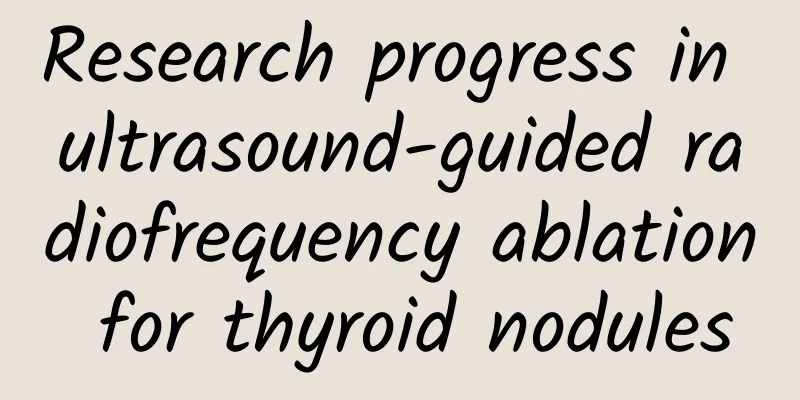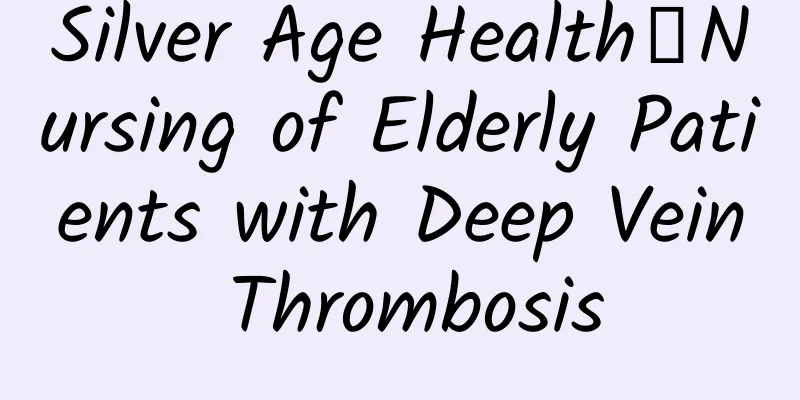Research progress in ultrasound-guided radiofrequency ablation for thyroid nodules

|
Thyroid nodules Thyroid nodules are lumps in the thyroid gland with various causes, including hyperplasia, tumors, autoimmune and inflammatory diseases. They can be single or multiple, with multiple nodules being more common, but single nodules have a higher risk of becoming cancerous. Thyroid nodules are common in adults, most of which are benign, with only 5%-15% being malignant. Ultrasound can identify the characteristics of nodules, and those suspected of being malignant require a puncture biopsy. Most nodules do not require surgery, but malignant or compressive nodules may require surgery. 1. What is Ultrasound-Guided Radiofrequency Ablation? Ultrasound-guided radiofrequency ablation is a treatment method that uses ultrasound technology to guide the insertion of a radiofrequency needle into a targeted organ, such as a tumor or lesion, through skin puncture. The radiofrequency current released by the radiofrequency needle can generate high temperatures, causing the local temperature to reach above 60°C, thereby causing irreversible death of tumor cells and achieving the purpose of treatment. It is highly safe and is commonly used to treat arrhythmias, early liver cancer, thyroid nodules and other diseases. Radiofrequency ablation of thyroid nodules has strict indications, and the doctor needs to decide based on the patient's condition and physical condition. 2. What are the advantages of ultrasound-guided radiofrequency ablation for thyroid nodules? 1. Minimally invasive and painless: This surgery uses local anesthesia, which has the advantages of less pain, less trauma, and no obvious scars. Therefore, the postoperative recovery is fast and patients generally do not need to be hospitalized. 2. Safe and effective: The operation is performed under real-time ultrasound guidance, which can accurately locate the nodules and avoid damaging the surrounding normal tissues, thereby reducing the surgical risks. 3. Preserve thyroid function: Radiofrequency ablation will not affect thyroid function, avoiding the risk of thyroid function loss that may be caused by traditional surgery. 4. Short operation time: Compared with traditional surgery, radiofrequency ablation has a shorter operation time, further reducing the patient's pain and inconvenience. 5. Fewer complications: Since the surgery causes little trauma and quick recovery, the chance of postoperative complications is relatively low. 3. What are the factors that influence ultrasound-guided radiofrequency ablation in the treatment of thyroid nodules? 1. Nodule size and location: The size and location of the nodule are important factors affecting the effect of radiofrequency ablation. Generally speaking, smaller nodules are easier to be completely ablated, while larger nodules may require longer time or multiple treatments to achieve the desired effect. In addition, the location of the nodule will also affect the difficulty and effect of the operation. For example, nodules close to the recurrent laryngeal nerve or blood vessels require more careful operation. 2. Functional status of the thyroid gland: The functional status of the thyroid gland will also affect radiofrequency ablation treatment. If the thyroid gland is dysfunctional, such as hyperthyroidism or hypothyroidism, it may affect the safety and effectiveness of the surgery. Therefore, the patient's thyroid function needs to be evaluated before surgery, and appropriate treatment is required if necessary. 3. The patient's physical condition: The patient's physical condition is also an important factor affecting radiofrequency ablation treatment. For example, the patient's age, cardiopulmonary function, coagulation function, etc. will affect the risk and effect of the operation. Therefore, a comprehensive assessment of the patient's physical condition is required before the operation to ensure the safety and feasibility of the operation. 4. The operator's experience and technical level: The operator's experience and technical level are also key factors affecting the effect of radiofrequency ablation treatment. Experienced doctors can more accurately judge the nature and location of nodules and operate radiofrequency ablation equipment more skillfully, thus achieving better treatment results. Therefore, it is very important to choose an experienced doctor to perform the operation. 4. What are the advances in ultrasound-guided radiofrequency ablation for thyroid nodules? 1. Technical optimization: With the continuous advancement of medical technology, the positioning accuracy and ablation effect of ultrasound-guided radiofrequency ablation therapy have been significantly improved. New radiofrequency needles and ablation equipment make the surgical process more refined and safer. 2. Expansion of indications: Early ultrasound-guided radiofrequency ablation was mainly used to treat smaller benign thyroid nodules. However, with the maturity of technology and the accumulation of clinical experience, its scope of indications has gradually expanded, and it can now be used to treat some malignant nodules such as micropapillary carcinoma. 3. Improved effect evaluation system: In order to better evaluate the treatment effect, the medical community has established a complete effect evaluation system, including ultrasound angiography, thyroid function tests, cytology tests and other indicators to comprehensively evaluate the ablation effect from multiple angles. 4. Improved complication management strategies: In response to possible complications such as bleeding and nerve damage, doctors have developed a series of effective prevention and management strategies to further reduce surgical risks. 5. Improved patient experience: With the improvement of surgical techniques and the improvement of postoperative care, the recovery time of patients after ultrasound-guided radiofrequency ablation treatment is shortened, the pain is reduced, and the overall experience is significantly improved. Ultrasound-guided radiofrequency ablation is a minimally invasive treatment for thyroid nodules. The radiofrequency needle is inserted into the nodule under ultrasound guidance to generate high temperatures that kill tumor cells. This method has the advantages of being minimally invasive, safe, and effective, and is suitable for some patients with thyroid nodules. Its treatment effect is affected by factors such as nodule size, location, thyroid function, patient physical condition, and operator experience. With technological advances, the positioning accuracy and ablation effect of this treatment method have been continuously improved, the scope of indications has been expanded, the complication management strategy has been improved, and the patient experience has also been significantly improved. ( Cheng Tao , Shanxi Yuncheng 541 General Hospital ) |
>>: Comprehensive knowledge of laboratory medicine
Recommend
The best treatment for multiple uterine fibroids
Multiple uterine fibroids, also known as uterine ...
Why did the author of Romance of the Three Kingdoms favor Shu Kingdom? What is Zhou Yu like in Romance of the Three Kingdoms?
The Romance of the Three Kingdoms uses characters...
What disease may cause cervical hardening?
The female cervix is a very important part for ...
Judging a woman's personality from her hip curve
Can you tell a woman's personality from her p...
I feel a little nauseous after having sex.
Making love is something that every couple and ev...
What should girls do if they feel stomach upset and want to vomit?
In daily life, if a girl feels stomach discomfort...
What are the methods of breast enhancement acupoint massage
Everyone knows that women’s breasts are a symbol ...
What are the reasons why women are irritable?
We often say that we can't guess what other p...
How to detect pregnancy during menopause?
Some women think that they can no longer get preg...
Is a 25 day menstrual cycle normal?
Every woman wants her menstruation to be normal, ...
What are the detoxification methods for women?
Women age very easily, and if their body's me...
Does hairtail fish have bones? How to fry hairtail fish to make it crispy and delicious
Hairtail is also the most original fried hairtail...
Five major hazards of women wearing jeans frequently
Jeans are the favorite clothing for many women. T...
What to do if your private parts are inflamed
Women must pay necessary attention to personal hy...









